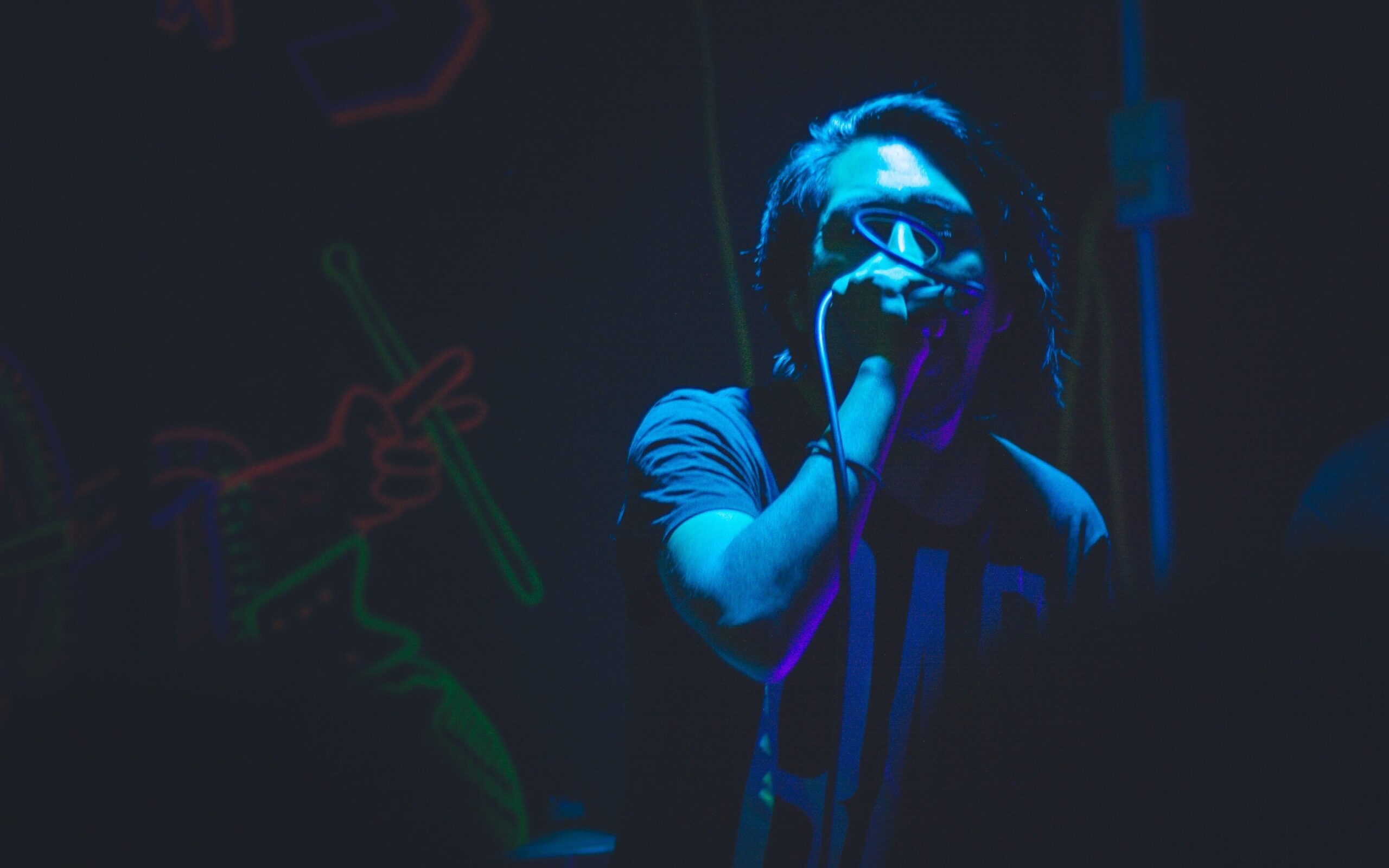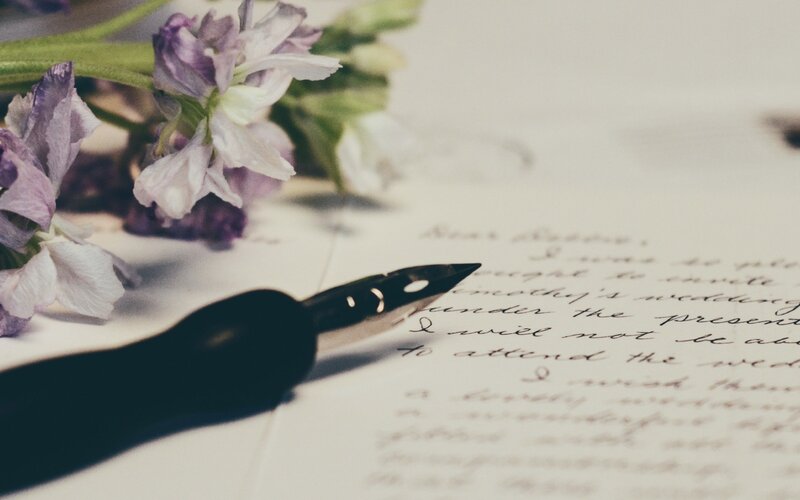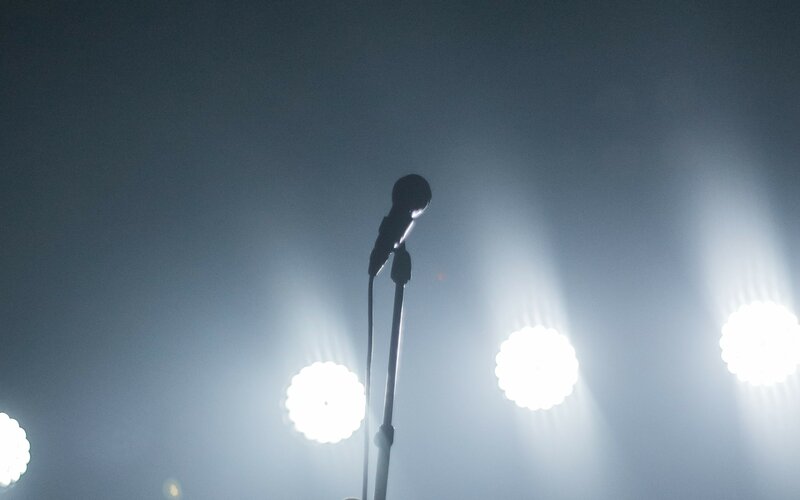
From rap battles and dance-offs to open mic nights, there are plenty of events out there to help aspiring creators test their material. For aspiring poets, it’s poetry slams.
But what is slam poetry? And what happens at a slam poetry event? Read on to find out.
History of slam poetry
Spoken word performances have long played a role in culture. Look back to the philosophers of Ancient Greece and you will find expressive dialogue performances about thoughts and ideas left, right and centre.
Poetry as an oral art form has been prominent throughout history. You can find it in hymns, chants and speeches, used to educate and entertain audiences on different topics, beliefs and ideologies, or as a great tool for debate.
You could argue that poetry recitals were the original poetry slams. But with less audience interaction. American poet Marc Smith is credited as the founder of the poetry slam movement, in Chicago back in 1984. Its arrival came to make poetry more accessible to an audience beyond academia and one for the wider public instead.
In the late ‘80s, poets began gathering in various social clubs, trialling new material, and gathering feedback. And shortly after, in 1990, the first official National Poetry Slam was held at Fort Mason in San Francisco.

What is slam poetry?
Put simply, slam poetry is poetry that is performed at a poetry slam. By definition, slam poetry is described as ‘a form of performance poetry that combines the elements of performance, writing, competition, and audience participation’.
What exactly is a poetry slam you ask? And what happens at a poetry slam event?
A poetry slam is a competitive art form where poets – aspiring or experienced – perform their poetry against fellow poets and in front of an audience.
Poetry slams give poets the opportunity to practice performing their poems in engaging ways and gather the reactions of the live audience in front of them. For budding professional poets, it’s a great way to trial new content and gauge public response.
Poetry slams can follow many different formats. Some are formal and professional competitions. These are often carefully scheduled events, broken up into acts. They can involve a set of five or three judges sitting on the voting panel. After each poet performs, judges will score their performance. Usually, these range between zero and ten – the latter being the better end of the scale.
Most poetry slams will follow a few rounds of performances by the poets, giving them a chance to perform a range of their content. In many cases, the lowest-scoring poets will be eliminated per round, propelling the competition forward until that final round between two performers.
In less formal poetry slams, audiences are called upon to vote too, which can make the events even more entertaining.
Like with other entertainment events (stand-up comedy or karaoke nights) you can also participate in ‘open mic’ style poetry slams, meaning anyone from the audience can step up on the stage and perform.

The rules of slam poetry
Depending on the nature of the slam poetry event, there can be different rules for performing. Any aspiring performer should note the rules of the event they are participating in, but here are a few common rules to bear in mind.
1. No restrictions on themes or style
Usually, slam poetry events aren’t themed, so the poems performed can be on any subject and in any style. Whether it’s an ode to the annual theme of National Poetry Day or an interpretation of a love ballad that’s been plaguing your heart, anything goes.
2. No costumes, props or audio support
In many cases, costumes and props aren’t welcome at poetry slams. Part of the challenge for a performer is to captivate an audience within the given environment. Having props to help illustrate ideas or create a deeper evocative response in the audience can put some performers at an advantage over others. So, some poetry slam organisations prefer to set this rule in stone. That goes for backing tracks or music too. Performers must only use their voices – no pre-recorded tracks.
3. Use your own work
Poets should only perform their own poems at a poetry slam, unlike karaoke nights where performers can recreate the works of ABBA or Madonna.
Where to see slam poetry
Slam poetry events can take place in any venue that’s willing to host them. You can find outdoor poetry slams – hosted in parks or public places or some of the most popular places are bookshops, coffee shops, bars and social clubs.
Ready to jump onto the stage? Or judge the works of new voices from the comfort of the audience? Get yourself along to a poetry slam event. You never know, it may inspire you to start writing your own poetry. And it may even lead you to win your very own poetry slam medal one day…
If the world of poetry excites you, take a look at former poet laureate, Carol Ann Duffy’s course on Writing Poetry.

Give the gift of knowledge
Surprise a special someone with a year's access to BBC Maestro or gift them a single course.





